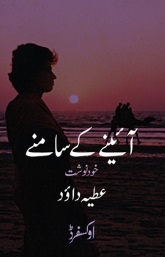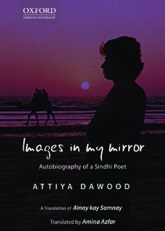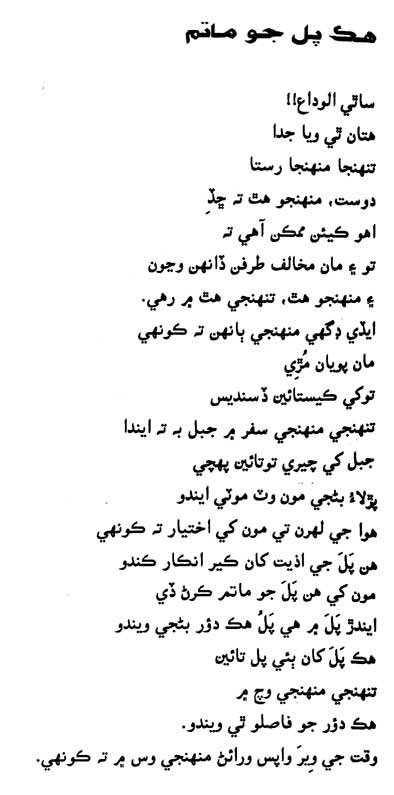Images in my mirror – آئینےکے سامنے
Attiya Dawood – عطیہ داود

Paperback: 224 pages
|
For some time I have been raiding bookstores trying to find autobiographies by South Asian women. Not someone else telling you stories of women they know – but a woman telling her own story. For this is what we really need to know. What goes on in the head and heart of that woman who grows up in and survives such violently misogynist societies? Societies where daughters are unwanted. Where women are brutalized and killed. A girl growing up even in the most progressive family on the Indian subcontinent still lives in context of a culture where the mindset says that being female is like being nothing. The strange thing is – you will hardly find any such books. Why? Because in south Asian societies it is taboo for women to speak out. Family and community are sacred – and what happens within must remain hidden. As girls grow up they are taught to tolerate pain and rejection. They are taught to hide the abuse they suffer or witness others suffer, from the outside world. It makes them the “good” daughters and “ideal” wives! Attiya Dawood breaks all these rules in her autobiographical account – Aine ke Samne (Looking into the Mirror). She speaks from the heart with passion and an uncommon candor. She shares the pain, humiliation and vulnerability she had to learn to survive, growing up fatherless in a small village in Pakistan. She tells of the grit and determination she needed to assert her self in life, and validate her own dreams, hopes and visions. Where society would rather have her play the preordained roles of good daughter, mother and wife, – what Dawood insists on repeatedly is : but I am first a person. I think this is what I admired most in this book. This stand – of being an individual independent of all other relations, is something that Asian women are never allowed. I remember watching this interview once of a world famous Indian woman author. She spoke of how she used to write only when her children were away from home. When she heard them coming back she would hurriedly hide her writings, because she did not want her children to feel that they were secondary to her own creative work. And Dawood, also a very content wife and mother, claims this very part of her – her core, her Self, in its wholeness, uniqueness and creativity with an attitude that is bold and unapologetic. In her her poem ‘To My Daughter’ Dawood writes:
Will it inspire other Asian women to do the same? It seems that is what Dawood hopes for – and hopefully it will. However by the end of the book — I had one burning question that remains. Why is it that some women rebel against systems that crush their spirits and negate their very existence, while a majority of women submit and comply? Dawood did not have any role-models or encouragement. In fact her meager upbringing hardly afforded her any opportunities in life. But even as a child she showed immense resistance to any form of tyranny. Then why is it that women even with education and income, completely and willingly relinquish all sense of self? My Favorite Passages From This Book:
Reviews
|


